EpCAM-positive hepatocellular carcinoma cells are tumor-initiating cells with stem/progenitor cell features
- PMID: 19150350
- PMCID: PMC2828822
- DOI: 10.1053/j.gastro.2008.12.004
EpCAM-positive hepatocellular carcinoma cells are tumor-initiating cells with stem/progenitor cell features
Abstract
Background & aims: Cancer progression/metastases and embryonic development share many properties including cellular plasticity, dynamic cell motility, and integral interaction with the microenvironment. We hypothesized that the heterogeneous nature of hepatocellular carcinoma (HCC), in part, may be owing to the presence of hepatic cancer cells with stem/progenitor features.
Methods: Gene expression profiling and immunohistochemistry analyses were used to analyze 235 tumor specimens derived from 2 recently identified HCC subtypes (EpCAM(+) alpha-fetoprotein [AFP(+)] HCC and EpCAM(-) AFP(-) HCC). These subtypes differed in their expression of AFP, a molecule produced in the developing embryo, and EpCAM, a cell surface hepatic stem cell marker. Fluorescence-activated cell sorting was used to isolate EpCAM(+) HCC cells, which were tested for hepatic stem/progenitor cell properties.
Results: Gene expression and pathway analyses revealed that the EpCAM(+) AFP(+) HCC subtype had features of hepatic stem/progenitor cells. Indeed, the fluorescence-activated cell sorting-isolated EpCAM(+) HCC cells displayed hepatic cancer stem cell-like traits including the abilities to self-renew and differentiate. Moreover, these cells were capable of initiating highly invasive HCC in nonobese diabetic, severe combined immunodeficient mice. Activation of Wnt/beta-catenin signaling enriched the EpCAM(+) cell population, whereas RNA interference-based blockage of EpCAM, a Wnt/beta-catenin signaling target, attenuated the activities of these cells.
Conclusions: Taken together, our results suggest that HCC growth and invasiveness is dictated by a subset of EpCAM(+) cells, opening a new avenue for HCC cancer cell eradication by targeting Wnt/beta-catenin signaling components such as EpCAM.
Figures
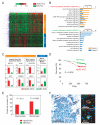
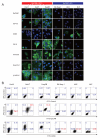
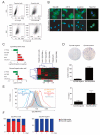
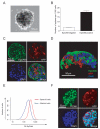
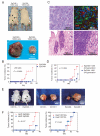
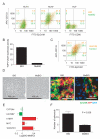
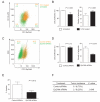
References
-
- Fialkow PJ. Clonal origin of human tumors. Biochim Biophys Acta. 1976;458:283–321. - PubMed
-
- Heppner GH. Tumor heterogeneity. Cancer Res. 1984;44:2259–2265. - PubMed
-
- Hanahan D, Weinberg RA. The hallmarks of cancer. Cell. 2000;100:57–70. - PubMed
-
- Jordan CT, Guzman ML, Noble M. Cancer stem cells. N Engl J Med. 2006;355:1253–1261. - PubMed
-
- Clarke MF, Dick JE, Dirks PB, et al. Cancer stem cells--perspectives on current status and future directions: AACR Workshop on cancer stem cells. Cancer Res. 2006;66:9339–9344. - PubMed
Publication types
MeSH terms
Substances
Grants and funding
LinkOut - more resources
Full Text Sources
Other Literature Sources
Medical
Molecular Biology Databases
Miscellaneous

